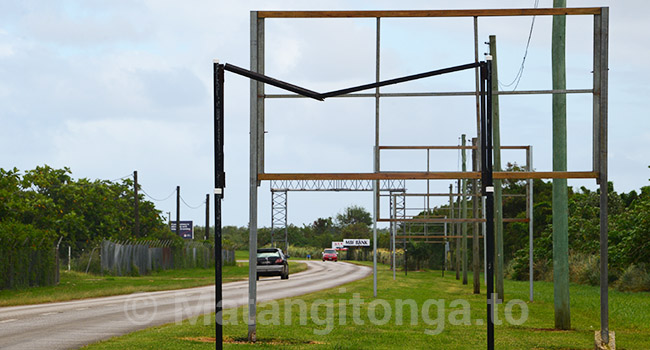
Can Tonga grow its economy? Asked if it was possible I would answer with a resounding Yes! There may be a need for some outside help, but there is an excess of unused talent and a large underutilized work force here that has proven itself in the past.
Remember the squash industry? Over a 20 year period squash employed thousands and brought in over 100 million dollars to the Kingdom. There were no doubt some excesses and not everyone benefited, but it was well organized including the many growers and exporters, the financing, the grading and packaging at the squash shed, the marketing, and the shipping. This was a Tongan effort at its best in every part of the industry with the possible exception of external marketing agents who provided some of the financing and established contracts with the buyers in Japan.
The squash industry eventually died as the result of several factors; a closing of the “window of opportunity” as Japanese growers and other nations such as Mexico slowly brought squash to the market during the traditional selling period of November and December; the rising price of fuel which increased the cost of shipping, fuel, and fertilizer; the inflexibility in the prices acceptable to Japanese buyers; and finally the inability of the average grower in Tonga to increase his yield of squash per acre to offset increased costs in order to compete with other nations (note that the average yield in Tonga was half that of squash grown in New Zealand).
A lot can be learned from this. The squash industry in Tonga showed what could be done if people are motivated and organized. The only caveat here would be a penchant for jealousy among exporters which never allowed them to market Tongan squash as a group to the Japanese who seemed to love the Tongan squash for its sweetness (a lesson that could benefit other Tongan industries). There are many other examples of successful businesses both in the private sector and the public sector government owned businesses.
Public/private sector committees
A few years ago the government sponsored the formation of a number of public/private sector committees to study the best way to go forward in many industries including fisheries, agriculture, handicrafts, retail/wholesale, and tourism. A lot of work was done and the results were to guide government in establishing policies that would encourage growth in these industries. Some industries have thrived as a result including handicrafts and the export of traditional agriculture crops.
These public/private partnerships need to become true advisors to National Planning and given the charter to submit policy and legislative suggestions to boost Tongan business based on a well thought-out set of goals and priorities, not just paper-pushing exercises. And we don’t need more roadblocks to investment such as the Foreign Exchange Act.
It would also help if the Tongan Development Bank went back to its roots (not as a commercial bank) and concentrate on industries that can be developed in Tonga - thus taking on riskier ventures - but this should be the charter of a country’s “development” bank.
And let’s not throw out the idea of occasional outside help. Good ideas can come from anyone and they need to be accepted for what they are – ideas from people who care and that can be used to improve the economy.
Dean Bishoprick




Comments
I would also agree that any
I would also agree that any economy can be pushed to grow, and that there is probably a lot of untapped talent going to waste so far. One industry that you didn't mention is the music and entertainment industry. I think of it because I enjoy my own favourite music a great deal and can kill an entire night and the morning after listening to what I like. Surely there must be talented singers, dancers, choreographers and other music-making and video-making professionals throughout Tonga. I can imagine a hit song or three if you had a bunch of these talented people getting together and aiming for some commercial success from a blend of traditional and modern music and singing, along with professional quality recording etc. The hunt is always on for new and exciting talent. - Paul Black
The biggest industries in
The biggest industries in Tonga have included retailing, handicrafts and bread. In addition, there are government services including health and education. These all serve the domestic economy. The more Tonga buys from Tonga, the bigger the economy can grow. Foreign income is very important but buying Tongan goods and services distributes that income throughout the whole economy and significantly raises total income.